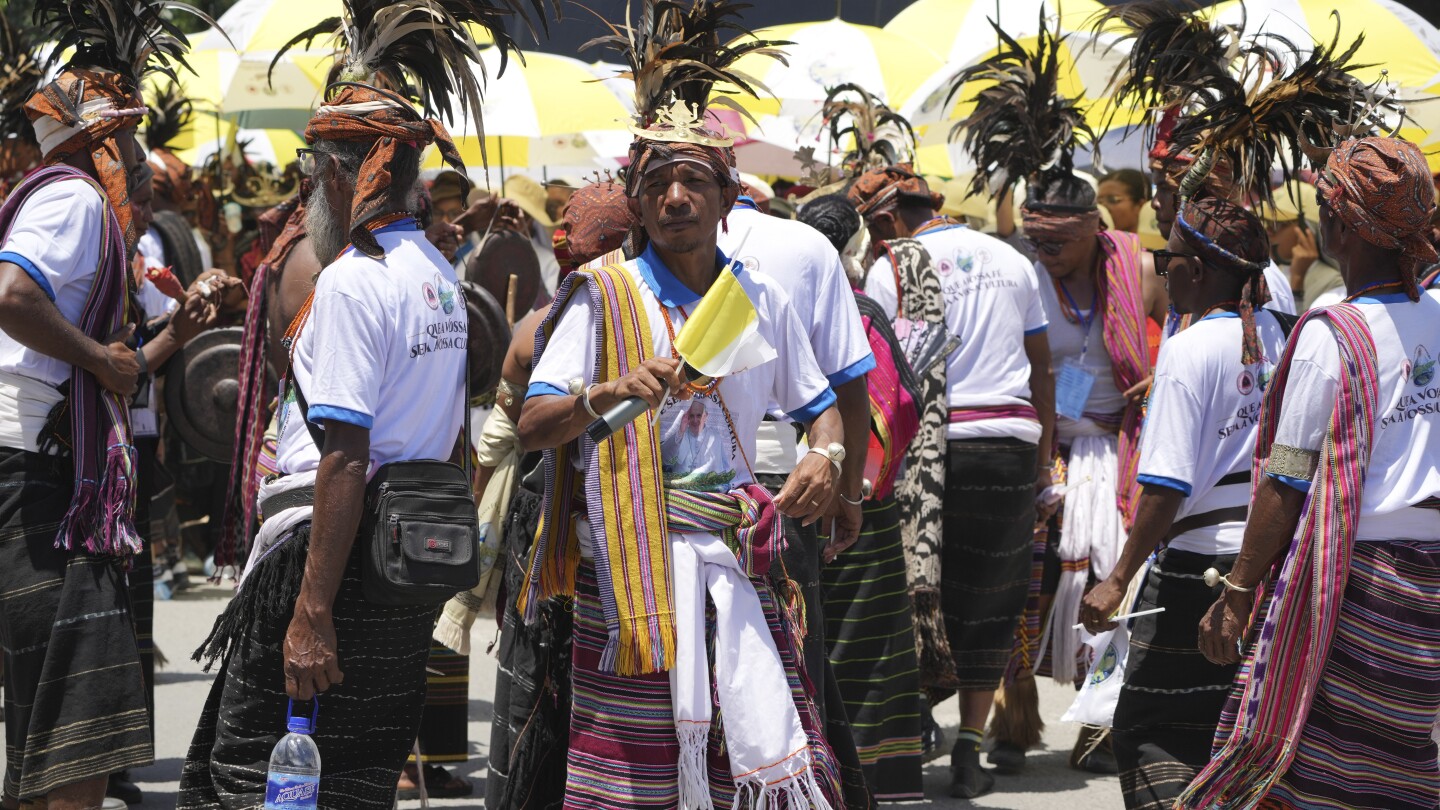DILI, East Timor (AP) — Pope Francis arrived in East Timor on Monday to encourage its recovery from a bloody and traumatic past and celebrate its development after two decades of independence from Indonesian rule.
Francis arrived in Dili from Papua New Guinea to open the third leg of his trip through Southeast Asia and Oceania. He’ll meet with Timorese leaders and diplomats later Monday.
The overwhelmingly Catholic East Timor, one of the world’s poorest countries, eagerly awaited Francis’ arrival, which came on the heels of the 25th anniversary of the U.N.-backed referendum that paved the way for independence from Indonesia.
“Our great hope is that he may come to consolidate the fraternity, the national unity, peace and development for this new country,” said Estevão Tei Fernandes, a university professor.
It was a far different atmosphere than when the last pope visited. St. John Paul II came in 1989, when Timor was still an occupied part of Indonesia and fighting for its freedom. As many as 200,000 people were killed during the 24 years of Indonesian rule.
Francis will confront that legacy, and another one more close to home involving Bishop Carlos Ximenes Belo, the Timorese bishop who, along with the Catholic Church as a whole, is regarded as a hero for his efforts to win independence.
Belo won the Nobel Peace Prize in 1996 with fellow East Timorese independence icon José Ramos-Horta, today the country’s president, for campaigning for a fair and peaceful solution to the conflict.
The Norwegian Nobel Committee, in its citation, praised Belo’s courage in refusing to be intimidated by Indonesian forces. The committee noted that while trying to get the United Nations to arrange a plebiscite for East Timor, he smuggled out two witnesses to a bloody 1991 massacre so they could testify to the U.N. human rights commission in Geneva.
In 2022, the Vatican acknowledged that it had secretly sanctioned Belo in 2020 for sexually abusing young boys. The sanctions included limitations on his movements and exercise of ministry and prohibited him from having voluntary contact with minors or contact with East Timor itself. The sanctions were reinforced in 2021.
Despite the sanctions, which were confirmed at the time by the Vatican spokesman and reaffirmed last week ahead of Francis’ trip, many people in East Timor have stood by Belo, either dismissing, denying or diminishing the victims’ claims. Some even hoped Belo, who lives in Portugal, would be on hand to welcome Francis.

